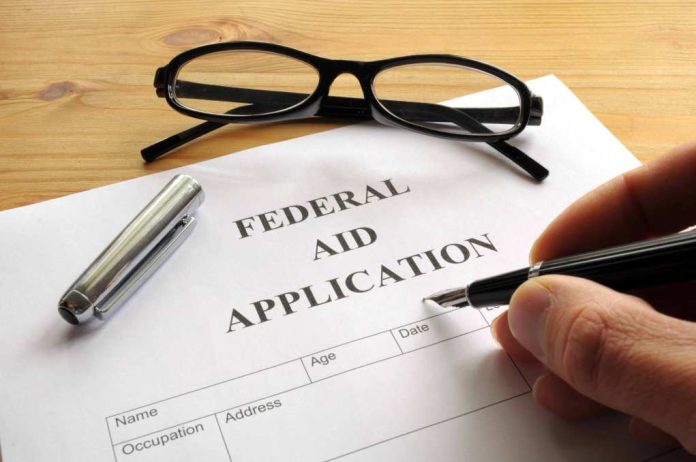
When you are dealing with financial hardship, you are likely dealing with a lot of stress. That’s because it can be hard to keep up with the costs of life like housing expenses. It can be even harder when you are renting in a market that is dealing with inflated prices. If you are dealing with financial hardship then you may benefit from getting support. The government understands that there are people in need which is why they offer a variety of different housing assistance opportunities that may be able to help.
Common Federal Rental Assistance Programs
It’s important to note that these programs vary by state. That means that the exact details of the program like the type of assistance, the eligibility criteria, and more can vary from one state to the next. However, two popular federal housing assistance opportunities includes:
Public Housing
One popular housing assistance opportunity on this list is public housing. This is a federal housing program that can provide safe and decent rental housing to qualifying applicants. This includes low-income families, people with disabilities, and the elderly. There’s a variety of different forms of housing whether it be a single family home, apartment complex, etc.
The United States Department of Housing and Urban Development (HUD) provides the funding to local housing agencies (HAs) to manage the properties of this program. Local HAs then provide that assistance to applicants that qualify at a rent that they can afford to pay. It’s a joint effort between the federal government and local HAs to handle the process of planning, developing, managing, and providing this housing assistance.
When determining if a person qualifies, the local HA will be the one to make this decision. Applicants can find that their application gets denied if the HA thinks that an applicant’s habits or practices could have a negative effect on their neighbors and the environment of the housing property. That means they will check references that come along with the application! But let’s look at this program more in-depth!
How Does Public Housing Work?
In public housing, your landlord is basically your local HA. Your local HA works with HUD to administer this program to those in need. HUD is the one that provides federal level aid to the local HAs. Once local HAs receive this aid, they will use it to manage the housing units for public housing. Besides providing federal aid, they also provide support to local HAs with planning, developing, and managing the units as well. HUD gets funding for this program through 2 main funds:
- The Public Housing Operating Fund: This fund aims to cover the gap between what tenants pay for public housing rent and the public housing operating costs like security, maintenance, etc.
- The Public Housing Capital Fund: This fund aims to cover the cost of renovations of developments for public housing.
Eligibility Requirements for Public Housing
Individuals that want to benefit for this type of rental assistance will need to be eligible. That’s because this program is meant to help those in need (not just anyone!). We will sound like a broken record in this article but specific eligibility criteria will vary by area. However, generally there some main factors that they consider for your eligibility which includes:
- Annual gross income
- Family status/Citizenship status
If you qualify to receive this assistance based on the factors above then your local HA will need to check your references. Through checking references, they can see if you and your family would be a good tenant. Your application could be denied even if you are eligible if your local HA believes you have habits or practices that they expect to have a negative effect on your neighbors in public housing or the housing environment.
Annual Gross Income
Your local HA will use income limits that HUD specifies. HUD sets the lower income limits at 80% of the area’s median income (AMI). On the other hand, HUD sets very low-income limits at 50% (AMI). The specific income limits will be different depending on the area which means you may be eligible at one HA but not one in a different area. To find out what the limits are for your local HA you can ask them directly or see if you can find the income limits online through a free HUD tool.
Family Status/Citizenship Status
The members of your family can also play a role in your eligibility and when you receive assistance. When your local HA reviews your family status they will see if you or any members in your household qualify as elderly, a person with a disability, or as a family. The definitions may vary by area but generally follow the same guidelines! It’s important to keep HUD definitions in mind for your family status. HUD defines someone as:
- Elderly if they are at least 62 years old.
- A person with a disability if they have a physical or mental impairment that greatly limits major life activities, have a record of having such impairment, or is regarded as a person that has such impairment.
- A citizen if they have a qualifying citizenship or immigration status.
How to Apply for Public Housing
Now that you have a general idea of the eligibility for public housing, it’s time to learn about the application process! We will always recommend that you confirm the exact eligibility requirements with your local HA! You can find your local HA through an online search or by using the locator that HUD provides. Just keep in mind they are also referred to as Public Housing Agencies but still provide the same service! If you are having a hard time getting a response from the HA then you can also get in touch with your local HUD Field Office.
Now for the application process. It will vary by area but the application process must be written. Either you or an HA representative will need to fill it out. Some information that your local HA generally needs includes:
- Details of the people that would be living in the unit (this includes name, gender, date of birth, relationship to the head of family, etc.)
- Your current phone number
- Your current address
- Family status information like characteristics or circumstances (like if you are a veteran [characteristic] that’s living in substandard housing [circumstance])
- Details of your current and previous landlords
- An estimate of your family’s expected income for the next year
- Details of employers, banks, etc.
Keep in Mind…
There may even be a home visit that your local HA conducts. These home visits can help them better understand you and your family, as well as provide them a view of how you upkeep your current property.
If you are accepted for this program your local HA will provide a written notification. Then, you will likely be placed onto a waiting list unless your local HA can provide assistance immediately. If your application is denied then your local HA will need to explain why. You can request an informal hearing as well!
Understanding the Documentation You’ll Need to Apply
Let’s get an even closer look at the documentation you’ll need to apply for this program. When you look online you will see that nearly every source says that the documentation that you will provide will be requested specifically by your local HA. The best way to confirm the exact documentation you will need to prepare is through your local HA. However, since you need to confirm the details listed above like family status information, financial details, etc., we will provide you with some common documents that can help with these details. Some documents that you will want to get together include:
- A copy of your driver’s license or I.D. card
- Birth certificates of everyone on the application
- Tax return documentation (you can get these from your employer)
- Bank statements for the past few months
- Qualifying mail items to show proof of your current address
It’s also important to note that a part of public housing requires a direct verification from your employer. That is why you can expect to need to sign a form that authorizes the release of information to your PHA! This will help them review your details in-depth and accurately. However, just like a broken record we will say it again, the specific documentation you will need will vary by your local HA!
Housing Choice Voucher Program
The second popular option on this list that people use when trying to get help with their housing costs includes the Housing Choice Voucher Program. This program is also referred to as Section 8. Just like public housing, this program can provide decent and safe housing to qualifying applicants. This includes low-income families, people with disabilities, and the elderly. However, this program can give people the chance to find affordable housing in the private housing market instead of being limited to just subsidized housing projects (like with public housing). That’s because this program is able to give housing vouchers to qualifying applicants.
These housing vouchers can be used at properties that accept them as a form of payment. This gives recipients the chance to find a property they like whether it be a single family home, townhome, apartment, etc. However, the property must meet the requirements set by your local Public Housing Authority (PHA). Once the recipient finds an approved property, a housing subsidy will be paid to the landlord by your local PHA directly on behalf of the qualifying recipients. Once the housing subsidy is paid to the landlord, the participating tenants will pay the difference between the actual rent charged by the landlord and the amount that their local PHA paid already.
Eligibility Requirements for Section 8
Not everyone is eligible for this program since it is only meant to help those in need. The specific criteria will vary by your local PHA but focuses on factors like:
- Annual Gross Income
- Family Status
- Citizenship Status
- Eviction History
Family Status
There are certain conditions that you must meet if you want to qualify for section 8. It will vary by your local PHA but generally the following conditions can impact your family:
- There’s at least one person that’s 62 years old or older
- You have children in your family
- There is at least one person with a disability
- Your family was displaced involuntarily
These guidelines fall in line with the HUD definitions. It’s important to keep HUD definitions in mind for your family status. HUD defines someone as:
- Elderly if they are at least 62 years old.
- A person with a disability if they have a physical or mental impairment that greatly limits major life activities, have a record of having such impairment, or is regarded as a person that has such impairment.
Please keep in mind that your family does not need to meet all of the conditions above. Instead, you want to aim to meet at least one of them. However, your local PHA will have specifics on which applicants will qualify, these are just general guidelines. The size of your family will also impact the unit size you are eligible to get. If there are any changes in the household you will want to report to your local PHA immediately! The documentation that you can provide for this includes birth certificates for the members of your household, and relevant identifying information.
Annual Gross Income
Families must earn less than 50% of the local AMI in order to qualify for this assistance program. The specific amount of money that you will need to make will vary so you will want to confirm with your local PHA. Your family size will also impact your income level. For example, the more family members you have then the higher your income limit will be. Some of the income sources that are important include:
- Alimony
- Bonuses
- Child Support
- Death Benefits
- Disability Income
- Employment Earnings
- Insurance Payments
- Military Pay
- Overtime pay
- Social Security Payments
- TANF Benefits (with Exceptions)
- Tips
- Unemployment Compensation
- Workers’ Compensation
You may also need to provide other financial documents like bank statements, tax returns, etc. However, it will vary by your local PHA so you will want to confirm with them.
Citizenship Status
You will need to be a valid United States citizen or have a qualifying immigration status. Which means you will need to provide documentation that proves this. You can expect to provide your birth certificate, social security number, and other qualifying immigration paperwork if needed like a green card. You can also expect to sign an affidavit that declares your legal status in America.
Eviction History
Since the housing choice voucher program works with private rentals to provide this housing assistance option, some eligibility criteria will be similar to the standard rental process, This includes taking into consideration your eviction history. Just like public housing, your local PHA wants to make sure that good tenants are the ones that receive assistance. That’s why it’s likely you will not be able to be approved for housing vouchers if you were evicted for drug-related activities.
How to Apply for Section 8
If you want to apply for this program then you are in luck because it’s super easy! When applying at your local PHA you will want to make sure you ask any and all questions you have. Just like the public housing application, it is completely free!
4 Step Application
You can basically break the application process up into four steps:
- Reach out to your local PHA: When you reach out you can get details about the program and ask any questions you may have. You can find out details about your local PHA through a quick online search or by using HUD search tools.
- Review your eligibility: You will be relying on your local PHA to provide you the necessary details you need to help you determine your eligibility. Obviously, the best way is through an application but they may know up front if you are even eligible to qualify for the program. For example, if the area’s median income (AMI) is $50,000 but you make $100,000, you will not be able to qualify for the program.
- Start the application process: Now that you have gotten in touch with your local PHA and you better understand program eligibility, you will want to begin the application process. Section 8 applications are free so you will not need to worry about paying anything. When filling out the application you want to make sure that you have no missing information and everything is accurate. How you submit the application will depend on the instructions that your local PHA provides.
- Wait for your answer: After you submit your application you will need to let it process. How long it takes to process can be different but typically takes a few months. If you are approved you will typically be placed onto a waiting list unless your local PHA can provide assistance immediately. Waitlists can be long and can mean it could be years before you receive your assistance.
What are Some Key Pieces About These Programs to Keep in Mind?
Both of these programs have some serious similarities! A few of the biggest similarities are about:
- Waitlists
- Credit Scores
- What to Avoid
What to Know About Waitlists?
There aren’t many public housing units available in America. In fact, there are roughly 958,000 public housing units. However, there are more people that need rental assistance than what’s available! This is why if you are accepted for this program your local HA will provide a written notification. Then, you will likely be placed onto a waiting list unless your local HA can provide assistance immediately.
The average wait time for public housing is 9 months but 25% of applications had to wait at least 1.5 years. In fact, some local HAs may decide to close the waitlist if it gets too long! That means you will want to expect some time before you actually get the assistance. Sometimes there are preferences for specific groups. This can help local HAs provide support to those who need it most. However, these preferences will be up to the discretion of the local HA and the needs within the community. You can find these preferences in your local HAs written policy manual.
Prioritization
Just like public housing, this is a popular housing assistance option. That means there is more demand than there is for supply. This results in waitlists! There are typically preferences that also come along with these waitlists. Those the most in need like households that are extremely low-income will receive prioritization. Some other conditions that can result in prioritization includes:
- Being a senior citizen (62 or older)
- Currently living in a shelter
- Being a veteran
- Being homeless
- Having children
- Being widowed
- Having a disability
- Working more than 42 hours a week
These waitlists can take a long time just like with public housing. It can take years. A good practice is to call your local PHA every two to three months to make sure that you are still on the list and moving up. However, each local PHA has their own set of guidelines and may not allow calls. It varies by locality so make sure to check with yours!
Does Your Credit Matter for Federal Housing?
Luckily, your credit score does not impact your eligibility to receive government subsidies. That means it will not affect your ability to receive the assistance. That’s because the only factor that will be considered is your income and assets to determine if you qualify. However, that doesn’t mean your credit score doesn’t matter at all.
Think back to when we said that applicants can find that their application gets denied if the PHA thinks that an applicant’s habits or practices could have a negative effect on their neighbors and the environment of the housing property. That means you may be denied if they think that your credit translates to you being an unfit tenant. That same principle applies for low-income housing opportunities. You may be denied if your credit history is not up to par for the expectation of your potential landlord!
What to Avoid on Your Application
You want to make sure that you fill out your application correctly and honestly. This means avoiding errors like:
- Spelling mistakes
- Inaccurate information
- Unverifiable information
When filling out the application you will want to take your time. One of the best parts about this application is the fact that it is free. So you will be able to take your time, knowing that nothing is coming out of your pocket.
Bottom Line
Applying for federal housing assistance can be stressful. Luckily, it doesn’t have to be. The process is fairly easy regardless of the program and is very similar! The best rule of thumb to keep in mind is that you will want to get in touch with your local HA or PHA. They will have information about the program and they can help you with the application process! Hopefully this article was able to provide you some more details that can help you on your affordable housing journey.




























